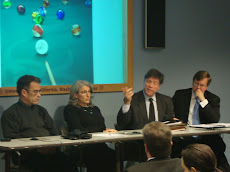Peter Doshi wrote about WHO's waffling over the definition of pandemic, which morphed into a meaningless definition that allowed even the common cold to be called a pandemic, since severity was missing from the definition.
Bonneux and Van Damme minced no words in their commentary:
The repeated pandemic health scares caused by an avian H5N1 and a new A(H1N1) human influenza virus are part of the culture of fear.1–3 Worst-case thinking replaced balanced risk assessment. Worst-case thinking is motivated by the belief that the danger we face is so overwhelmingly catastrophic that we must act immediately. Rather than wait for information, we need a pre-emptive strike. But if resources buy lives, wasting resources wastes lives. The precautionary stocking of largely useless antivirals and the irrational vaccination policies against an unusually benign H1N1 virus wasted many billions of euros and eroded the trust of the public in health officials.4–6 The pandemic policy was never informed by evidence, but by fear of worst-case scenarios.
In both pandemics of fear, the exaggerated claims of a severe public health threat stemmed primarily from disease advocacy by influenza experts. In the highly competitive market of health governance, the struggle for attention, budgets and grants is fierce. The pharmaceutical industry and the media only reacted to this welcome boon. We therefore need fewer, not more “pandemic preparedness” plans or definitions. Vertical influenza planning in the face of speculative catastrophes is a recipe for repeated waste of resources and health scares, induced by influenza experts with vested interests in exaggeration. There is no reason for expecting any upcoming pandemic to be worse than the mild ones of 1957 or 1968,7 no reason for striking pre-emptively, no reason for believing that a proportional and balanced response would risk lives...
The key to responsible policy-making is not bureaucracy but accountability and independence from interest groups. Decisions must be based on adaptive responses to emerging problems, not on definitions...










No comments:
Post a Comment